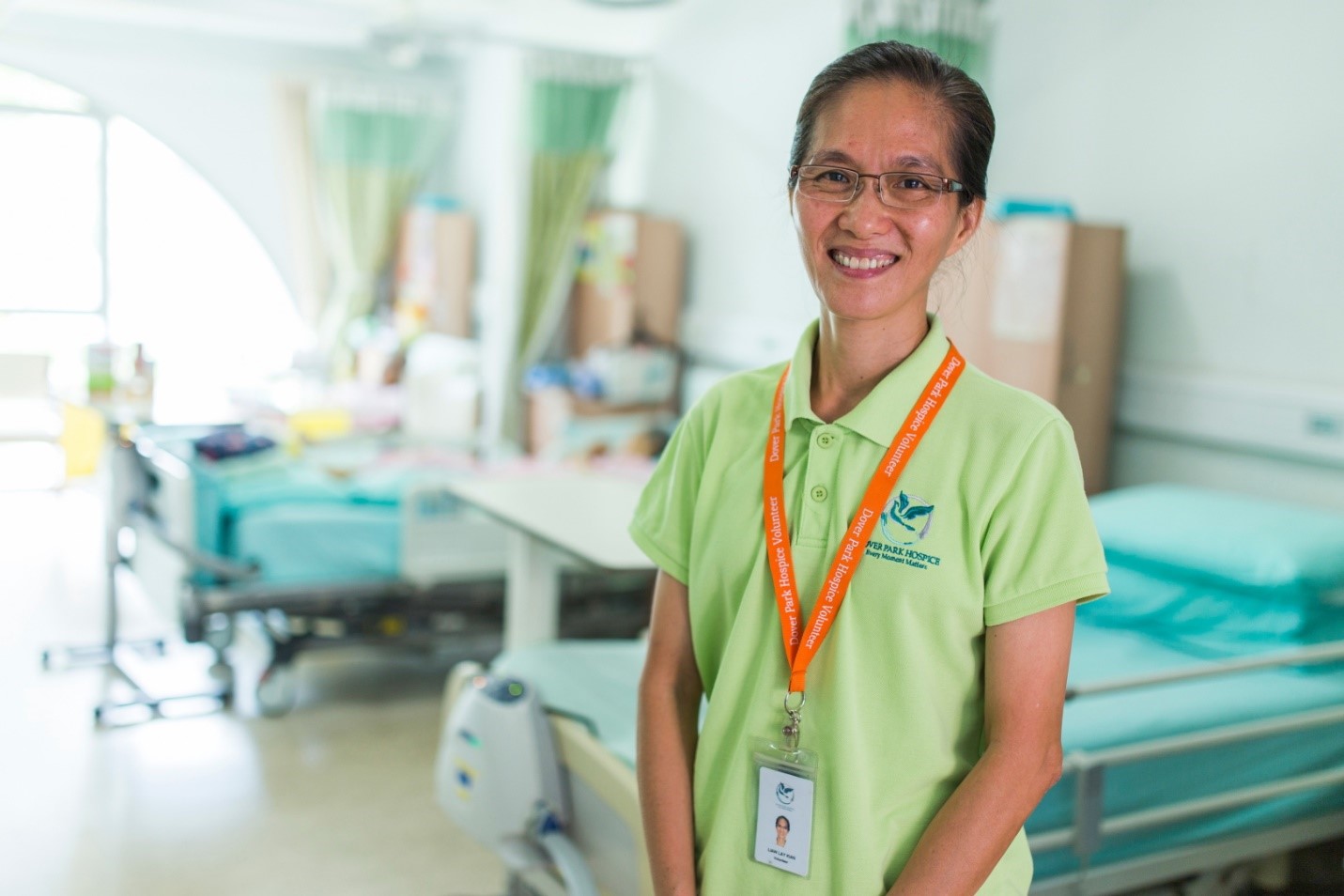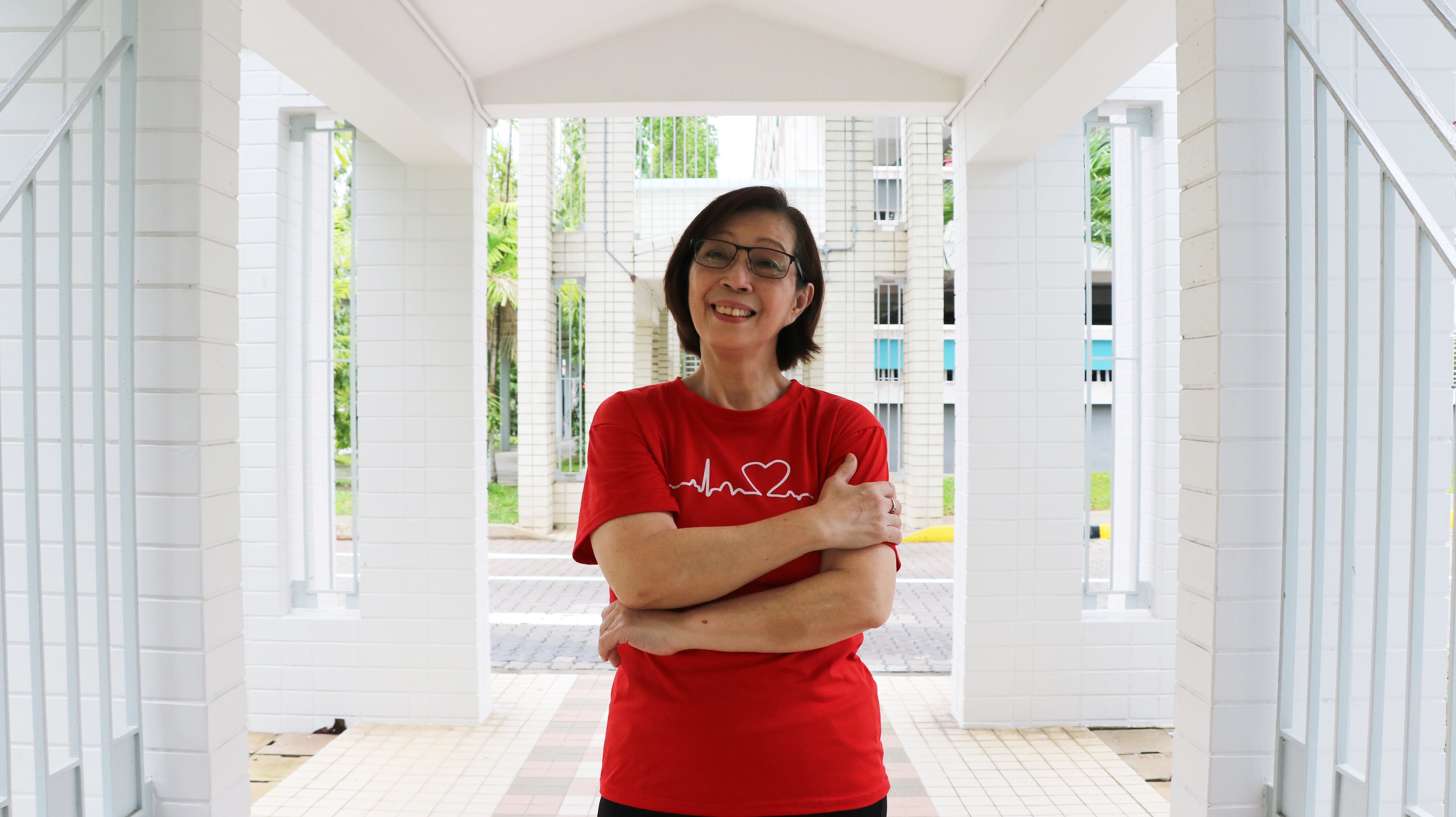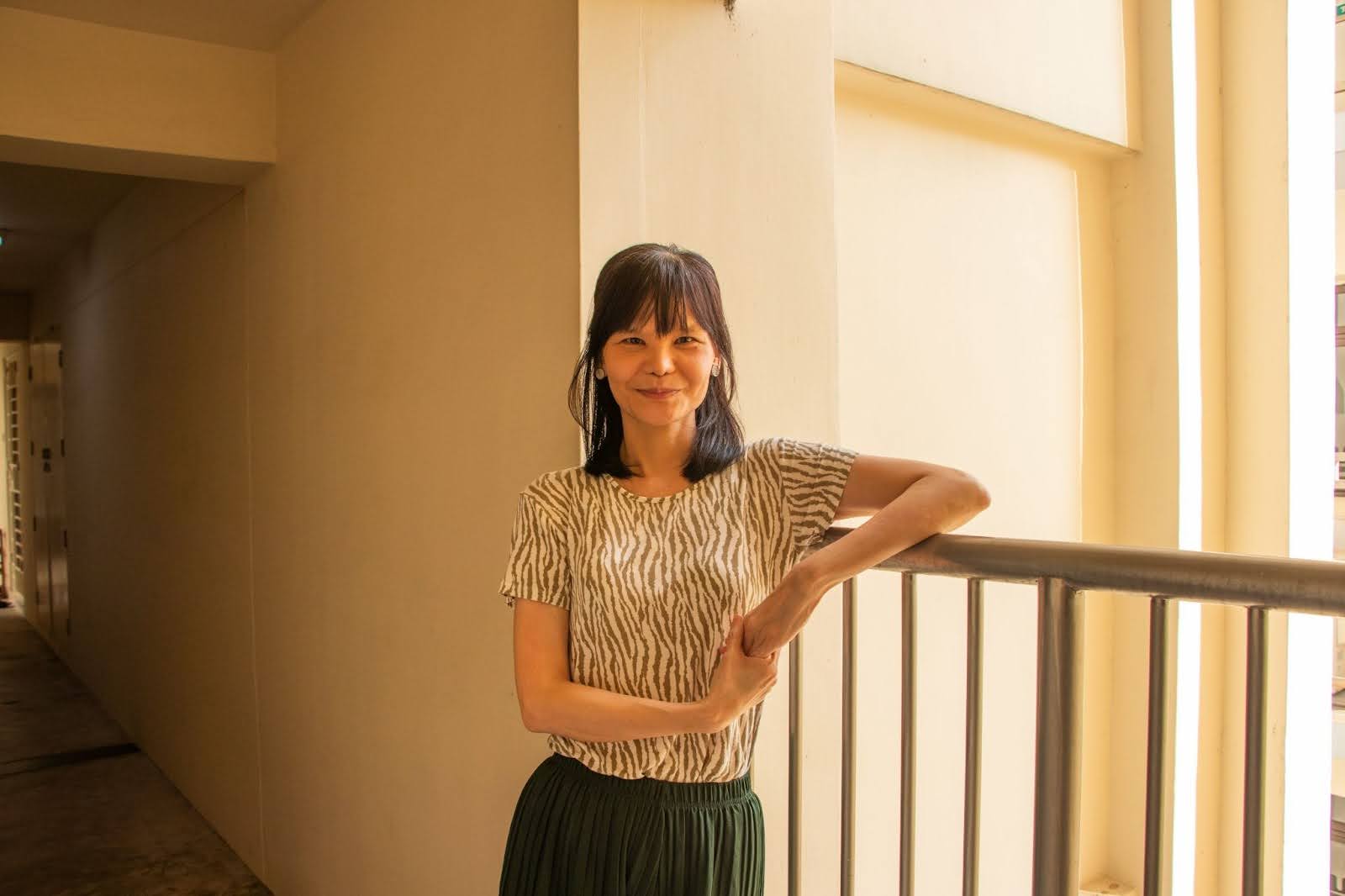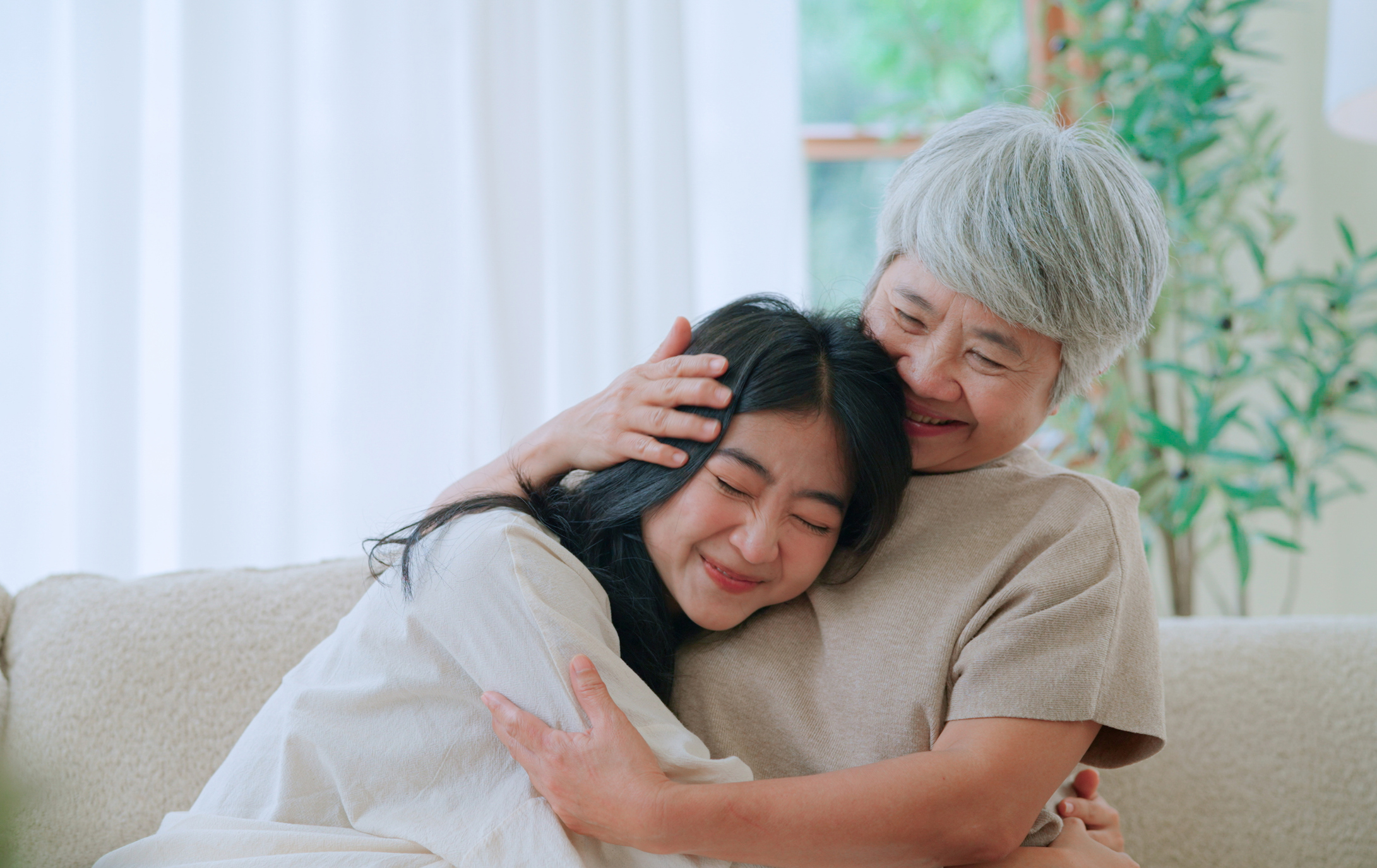(This story is from our archives of NextStep Magazine. The Magazine has since been renamed to AIC With You)
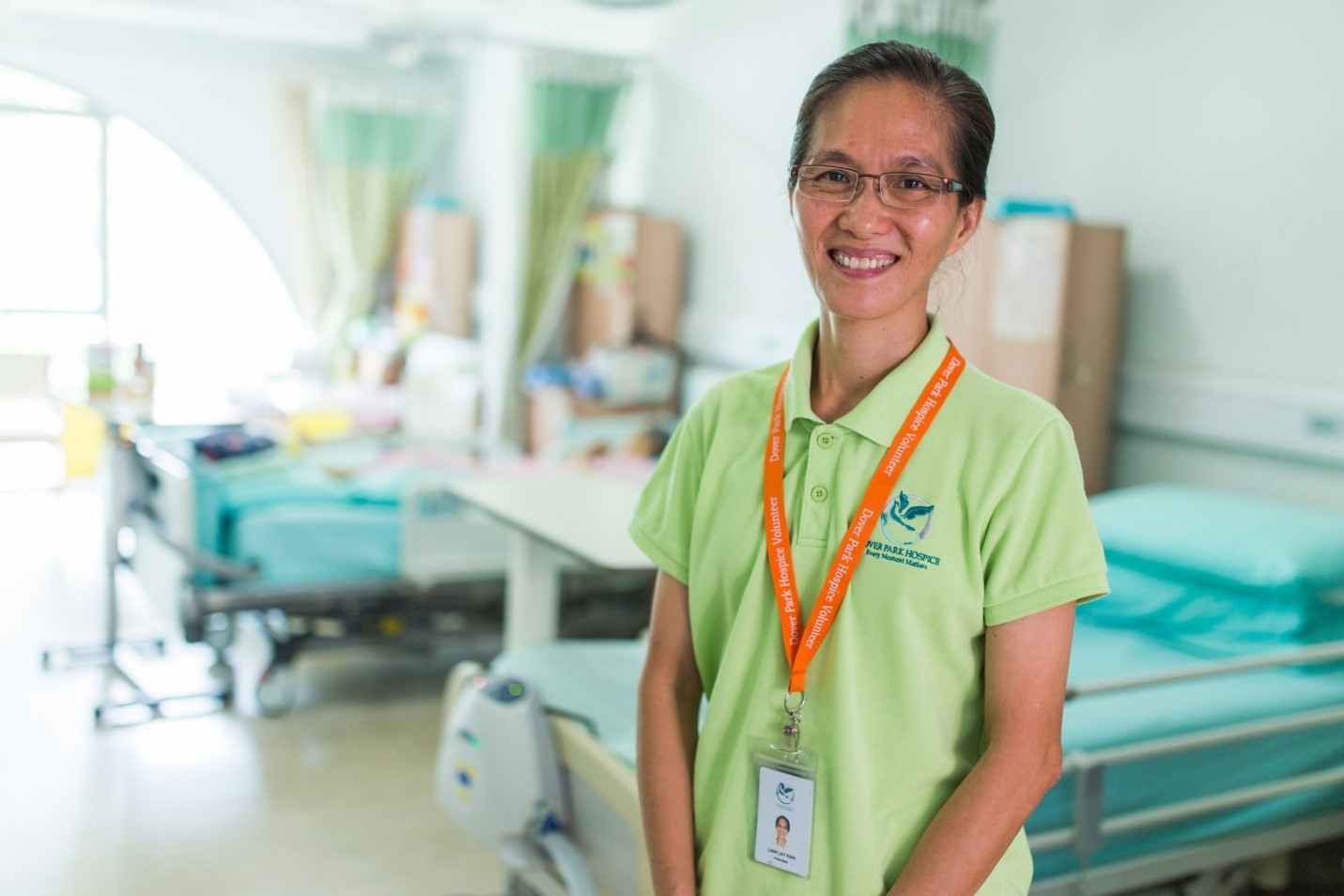
Having graduated at the top of her class in her nursing course at the Institute of Technical Education (ITE), Madam Liaw Lay Kian stands out from her classmates. But it’s not just for her academic achievements.
She was in her 50s when she went back to school, making her one of the oldest students in her cohort. And this was after she spent over a decade caring tirelessly for both her late father-in-law and her late husband.
HER CAREGIVING STORY
Madam Liaw started caring for her father-in-law, who was bedridden, in 1996. In 2008, her husband was diagnosed with cancer, and the housewife had to care for him too. She eagerly grabbed any opportunity she could to learn the right ways of caregiving, such as when her father-in-law received occupational and physiotherapy services at home.
“When the physiotherapist came over to our house, I picked up some techniques from him, such as how to lift my father-in-law correctly and some exercises to strengthen his muscles,” she says.
As her father-in-law and husband were much bigger than her, the physical demands of caregiving were especially tough on her small frame. However, what she lacked in physical strength she more than made up for with her determination, resilience and faith. She shares, “But I just did it and pushed on, no matter how tired I was. My father-in-law and husband cared for their families all these years, so it's due to them.”
VOLUNTEERING AT DOVER PARK
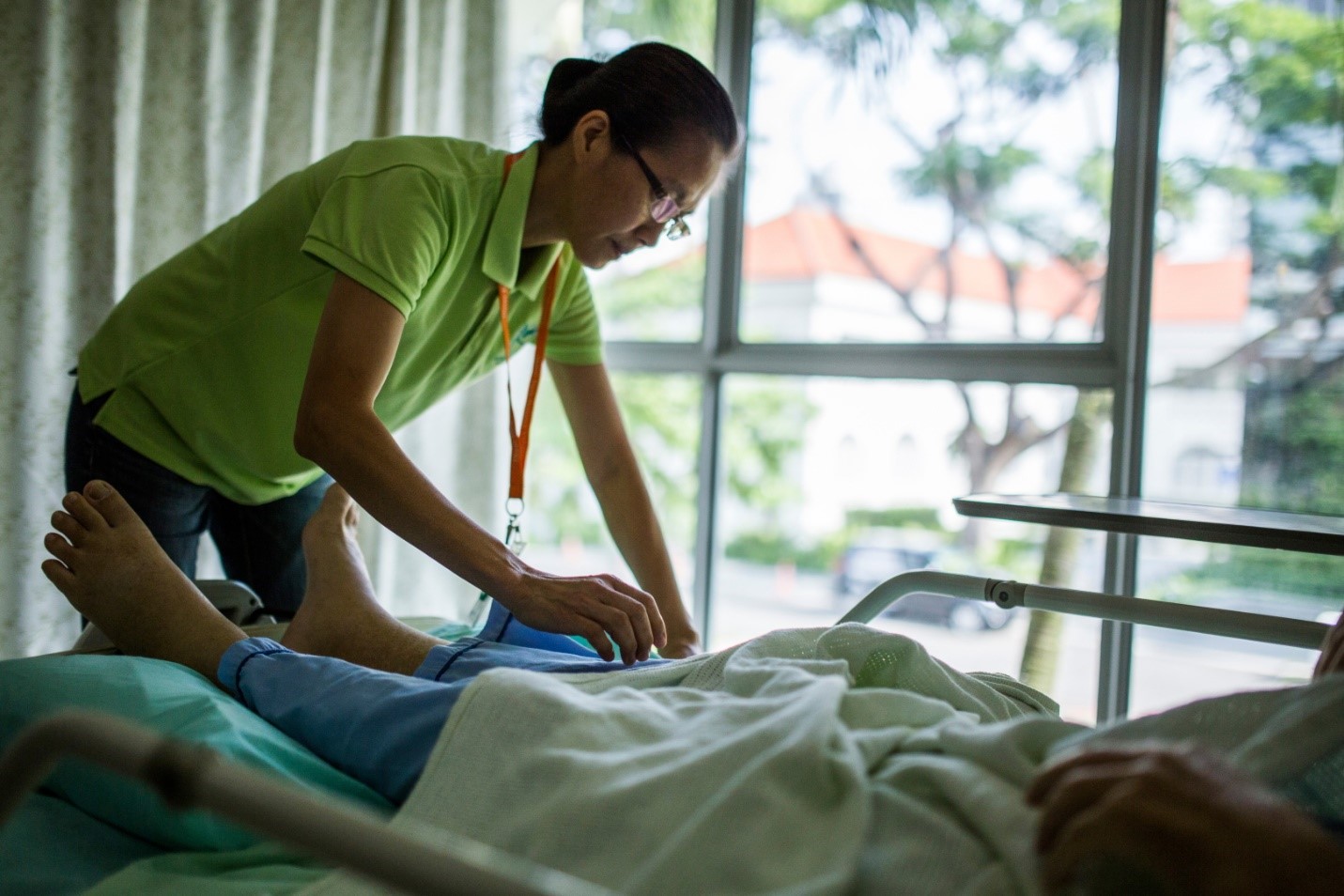
Studies aside, Madam Liaw make time to volunteer at Dover Park Hospice. “Their motto, Every Moment Matters, speaks to my heart greatly,” she reveals. It was at the hospice that Madam Liaw discovered the difference between learning theories in classroom and putting what she’s learnt into practice.
A young boy’s mother had just passed away and Madam Liaw wanted to comfort him. “At school, we are taught how to communicate with grieving family members,” she says, “but it’s different when you actually come face-to-face with a grieving person.”
She continues, “I just held him and allowed him to express his grief. I just needed to be there for him in this difficult moment.”
ON LIFE AND DEATH
Madam Liaw is keen to share her experiences with friends and family, as she knows all too well how much support caregivers of terminally ill loved ones need.
“I’ve been there, I’ve cared for terminally ill patients at home. Most people, as far as I know, would like to die at home. So for these families, it’s important for them to receive support and assistance as much as possible,” she says.
But she has found that it’s not easy to broach the “taboo” topic of palliative care, and calls for more awareness on this particular sector.
“Palliative care is not just about death, it’s about how to make the patients’ lives, however long they have remaining, comfortable and with quality,” she says. “And it’s not just about the patient – how do you care for their family who will be left behind? These are issues I hope to help address when I join the sector.”


